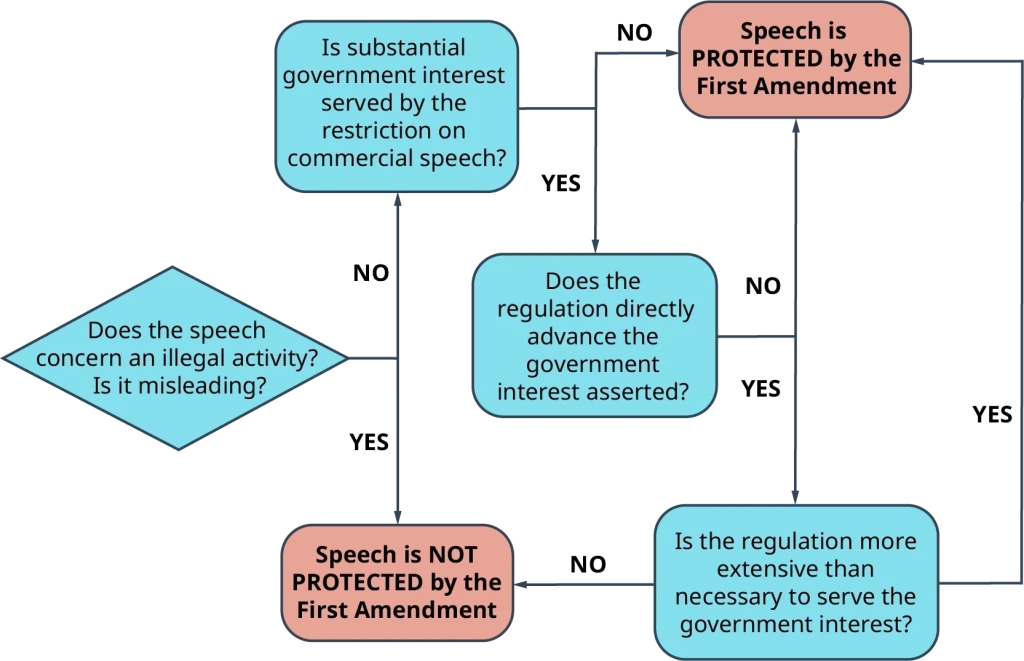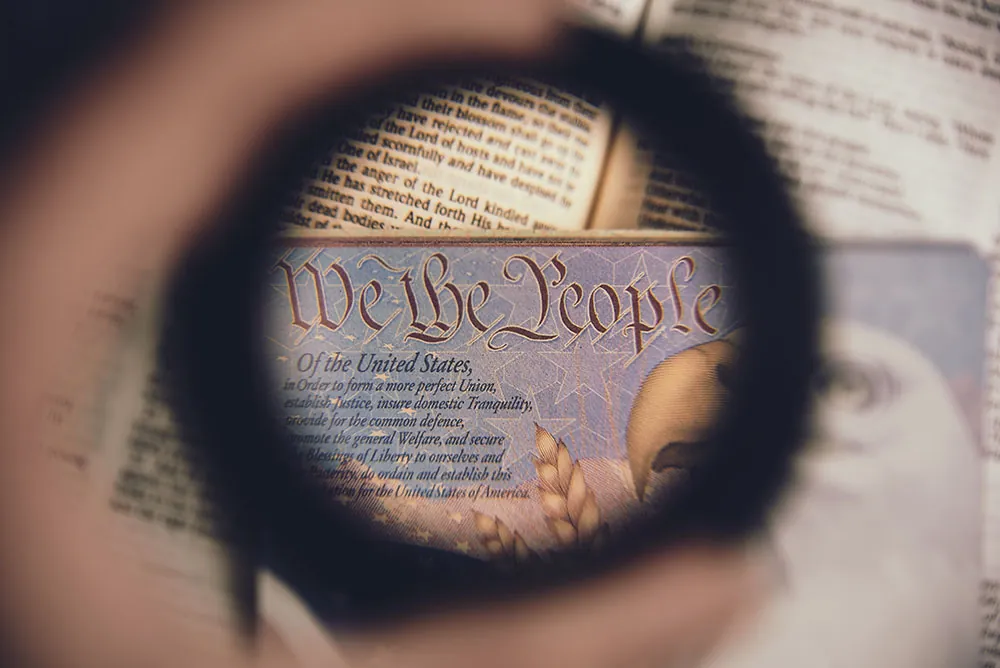5 Constitutional Protections
OpenStax
The Bill of Rights is the common term given to the first 10 amendments to the U.S. Constitution. These are not the only set of amendments to the Constitution, but they are considered together as impacting rights because they limit the ability of the federal government to infringe upon individual freedoms. In addition, a later amendment, the Fourteenth Amendment, extends the provisions set out in the Bill of Rights to the states, in addition to federal government. The Bill of Rights has a substantial impact upon government regulation of commercial activity, and therefore, it is important to fully understand it.
A summary of the provisions of the Bill of Rights is supplied below:
| Amendment | Provision |
|---|---|
| First | Ensures that U.S. citizens have the right to freedom of speech, press, religion, and peaceable assembly. Provides citizens with the right to appeal to government to redress grievances. |
| Second | Establishes that the government cannot infringe upon citizens’ right to bear arms. Establishes the importance of a militia for national security. |
| Third | Establishes that the government cannot quarter soldiers in private houses during peacetime or wartime. |
| Fourth | States that government can only issue warrants with probable cause and protects U.S. citizens from unwarranted search and seizure. |
| Fifth | Establishes rights of due process. Ensures that indictment of a grand jury is necessary to put a citizen on trial and grants citizens the right not to testify against themselves. |
| Sixth | Provides citizens with the right to an expeditious public trial, the right to an attorney, and the right to an impartial jury. |
| Seventh | States that citizens have the right to a trial by jury for common lawsuits involving monetary value of $20. |
| Eighth | Prohibits cruel and unusual punishment, prevents the imposition of excessive fines, and states that the government cannot set bail at excessive amounts. |
| Ninth | States that the rights set out in the Bill of Rights do not remove any other rights granted to citizens. |
| Tenth | States that any area over which the federal government is not granted authority through the Constitution is reserved for the states. |
Application of the Bill of Rights to Commercial Activity
The protections afforded the citizenry in the Bill of Rights are also extended to corporations and commercial activities. In the next sections, some applications of the various amendments in the area of business are discussed.
The First Amendment
The freedom of speech provisions in the First Amendment have application to corporations. The courts distinguish between different types of speech, and each has implications for the power of the federal government and states to regulate in these areas:
- Corporate Political Speech. Political speech is any speech used to support political agendas or candidates. Until the 1970s, several states prevented firms from financially supporting political advertising because they feared the power of corporate assets. However, since the 1978 case First National Bank of Boston v. Bellotti, it has been established that corporate political speech is protected in the same way as citizens’ free speech.
- Unprotected Speech. The 1942 case Chaplinsky v. New Hampshire determined that certain types of speech—that which could “inflict injury or incite an immediate breach of the peace”—is not protected under the First Amendment. Therefore, obscenities, defamation, and slanderous speech are not protected.
- Commercial Speech. This type of speech conveys information pertaining to the sale of goods and services. Ever since the 1980 case Hudson Gas & Electric Corp v. Public Service Commission of New York, a four-part test has been established to determine whether commercial speech should be regulated according to the First Amendment. This test is known as The Central Hudson Test for Commercial Speech.

The Fourth Amendment
The Fourth Amendment guarantees that citizens are free from unreasonable searches and seizures, and requires government officials to obtain search warrants to conduct searches. However, government officials can only request a search warrant if they have probable cause to believe that criminal activity is occurring at the location of the search, or that they will locate evidence of criminal activity during the search (except where the official believes items will be removed prior to obtaining a warrant). The Fourth Amendment protects individual organizations and places of business, as well as residences. However, under the terms of the pervasive-regulation exception, administrative agencies can conduct warrantless searches of businesses attached to industries that have a long history of pervasive regulation. For example, public health agencies are allowed to conduct warrantless searches of stone quarries, as authorized by the Federal Mine Safety and Health Act of 1977.
The Fifth Amendment
For commercial enterprises and businesspeople, it is the due process clause of the Fifth Amendment that offers the most extensive protection. The clause states that the government cannot take an individual’s life, liberty, or property without due process of law. Specifically, there are two types of due process:
- Substantive due process means that laws that will deprive an individual of his or her life, liberty, or property must be fair and not arbitrary. Laws passed should not affect fundamental rights, and regulations are required to meet the rational-basis test. In other words, the government must demonstrate that the law bears a rational relationship to a legitimate state interest. Many regulations affecting commercial activity, such as banking regulations, minimum wage laws, and regulations inhibiting unfair trade, have been tested against the rational-basis test.
- Procedural due process means that governments must use fair procedures when depriving an individual of his or her life, liberty, or property. This status quo does not only apply to federal criminal proceedings. For example, if a government employer discharges an employee from his job, or if the government suspends the driver’s license of a worker, the employer must follow procedural due process.
Another clause contained in the Fifth Amendment that is relevant to commercial enterprises is the takings clause. According to this clause, when the government seizes private property for public use, it is required that the government pay the owner just compensation for the property. Just compensation is understood to be equivalent to the market value of the property. This clause has been broadly interpreted. For example, if environmental or safety regulations significantly impact the way in which a property owner can use his or her land for economic gain, the regulation can essentially be deemed as depriving the owner of his or her land, and the owner is entitled to compensation.
It is important to note that the privilege against self-incrimination, established under the Fifth Amendment (usually interpreted as the right to remain silent), only applies to sole proprietorships that are not legally distinct from the individual who owns them. Custodians and agents of corporations do not enjoy this privilege.


